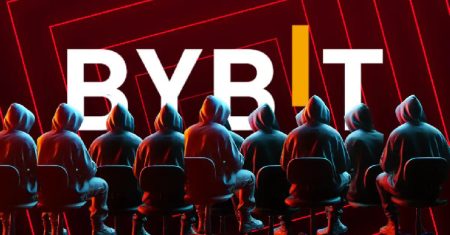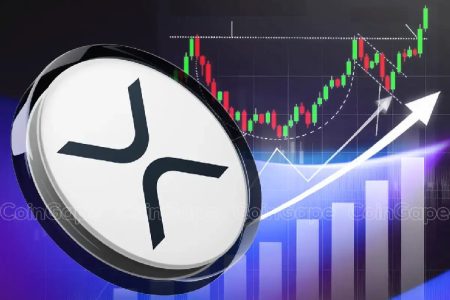Navigating the Shifting Regulatory Landscape: The SEC’s Crypto Stance and Market Implications
Introduction: A New Era of Regulatory Clarity?
The cryptocurrency market has recently witnessed a significant shift in the regulatory approach of the U.S. Securities and Exchange Commission (SEC), as the agency dropped its high-profile cases against major players like Coinbase, Binance, and OpenSea. This sudden change in strategy has sparked optimism within the crypto community, signaling a potential move toward a more balanced and nuanced regulatory framework. While the SEC continues to pursue cases against other platforms such as Kraken Exchange, Uniswap, and Robinhood, the dismissal of these cases has raised hopes that the agency may be cautiously reevaluating its stance on the crypto industry. For investors and market participants, any resolution or clarity from the SEC is welcome news, as it could alleviate uncertainty and pave the way for market stabilization.
Dismissed Cases: A Signal of Regulatory Rebalance
The SEC’s decision to drop its cases against Coinbase, Binance, and OpenSea has been interpreted by many as a sign that the agency is beginning to adopt a more pragmatic approach to regulating the crypto space. These dismissals suggest that the SEC may be recognizing the complexity and unique characteristics of digital assets, which often don’t fit neatly into traditional securities frameworks. Coinbase, for instance, had been a key defendant, and the dropping of its case has been seen as a positive development for the broader industry. Similarly, the dismissal of the case against OpenSea, a leading NFT platform, indicates that the SEC may be acknowledging the distinct nature of non-fungible tokens (NFTs) and their role in the digital economy.
While these developments are encouraging, it’s important to note that the SEC’s enforcement efforts are far from over. The agency is still actively pursuing cases against other major platforms, including Kraken Exchange, Uniswap, and Robinhood. In some instances, the SEC has already issued Wells notices, a formal indication that it intends to bring enforcement actions. This dichotomy—dismissing some cases while aggressively pursuing others—highlights the ongoing uncertainty and the need for clearer regulatory guidelines.
Ongoing Cases and the Path Forward
The crypto market remains in a state of limbo as the SEC continues to enforce its oversight over certain platforms. Kraken Exchange, for example, has been a focal point of regulatory scrutiny, with the SEC expressing concerns over its operations. Similarly, Uniswap, a decentralized exchange, and Robinhood, a popular trading platform, are also under the agency’s microscope. These ongoing cases underscore the challenges the SEC faces in balancing innovation with investor protection.
One of the most eagerly anticipated developments is the resolution of the Ripple case, which has been a defining legal battle in the crypto space. The outcome of this case could have far-reaching implications for how the SEC classifies and regulates digital assets. Many industry participants are hopeful that a favorable resolution for Ripple could set a precedent for greater regulatory clarity, potentially boosting market confidence and driving innovation.
The Ripple Case: A Watershed Moment for Crypto
The Ripple case has been a relentless source of drama and intrigue, with both sides presenting compelling arguments. As the legal proceedings drag on, speculation is growing about how the SEC might approach the case. Attorney Jeremy Hogan, who has been closely following the case, suggests that the SEC may choose to pause certain aspects of its enforcement efforts, potentially signaling a willingness to resolve the matter amicably. While this is a promising sign, Hogan also cautions that the process could take time, leaving the market in a state of anticipation.
The importance of the Ripple case cannot be overstated. A favorable outcome for Ripple could help establish clearer boundaries for what constitutes a security in the context of digital assets. This clarity could, in turn, reduce uncertainty for other platforms and projects, fostering a more conducive environment for innovation. However, the stakes are high, and the SEC faces significant pressure to demonstrate that it is acting fairly and consistently in its enforcement actions.
Expert Insights: Navigating the Regulatory Landscape
Legal experts like Marc Fagel, a former SEC lawyer, have offered valuable insights into the potential outcomes of the Ripple case. Fagel has noted that the SEC would be remiss to drop its appeal while Ripple has cross-appealed, as this could be seen as a dereliction of its regulatory duties. He also emphasized that failing to collect penalties in such high-profile cases could undermine the SEC’s authority and potentially set a bad precedent.
Fagel believes that a settlement is the most likely outcome, with the terms potentially mirroring those of a summary judgment. However, he also acknowledges that the timeline for such a resolution is uncertain. While some speculate that a resolution could be reached before August 7, 2025, Fagel suggests that it could happen at any time, leaving the market in a state of heightened anticipation.
Conclusion: The Road Ahead for Crypto Regulation
The recent developments in the SEC’s enforcement activities suggest that the agency may be taking a more measured approach to regulating the crypto space. While the dismissal of cases against Coinbase, Binance, and OpenSea is a positive sign, the ongoing cases against Kraken, Uniswap, and Robinhood remind us that regulatory uncertainty persists. The Ripple case, in particular, remains a critical focal point, with the potential to reshape the future of crypto regulation.
As the market waits with bated breath for updates from the SEC, one thing is clear: any resolution that brings greater clarity to the classification and treatment of digital assets will be a net positive for the industry. By addressing the lingering questions around securities laws, the SEC can help stabilize the market and create a more favorable environment for innovation. While the journey is far from over, the recent signals from the SEC offer a glimmer of hope that the crypto industry may finally be moving toward a more certain and sustainable future.















